Revolutionizing Industries with Green Hydrogen
Applications
Green Hydrogen is transforming industries by providing a sustainable and efficient energy source for a cleaner future. At MajanH2, we explore its diverse applications across sectors such as fuel cells, refineries, fertilizers, and hard-to-abate industries like iron & steel, cement manufacturing, and heavy-duty transportation. By integrating Green Hydrogen solutions, businesses can reduce carbon footprints, enhance energy efficiency, and contribute to a greener tomorrow.
Applications
- Fuel Cell
- Refineries
- Fertilizers
Hard to Abate Sectors
Fuel Cell
Green Hydrogen is widely used in fuel cells to generate electricity, providing a clean and efficient energy source for various applications.
Hydrogen Fuel Cell Vehicles (FCEVs)
Fuel Cell Electric Vehicles (FCEVs) use hydrogen to generate electricity, offering an eco-friendly alternative to traditional combustion engines.
- Zero Emissions: Hydrogen fuel cells produce only water vapor as a byproduct.
- High Energy Efficiency: More efficient than gasoline or diesel vehicles.
- Rapid Refueling: Hydrogen refueling takes only a few minutes.

Refineries
Hydrogen is essential in petroleum refineries for desulfurization and hydrocracking processes, reducing carbon emissions.
Hydrocracking and Fuel Upgradation
Green Hydrogen is used to refine crude oil into high-quality fuels like diesel and jet fuel.
- Enhances Fuel Quality: Removes impurities and improves fuel efficiency.
- Reduces Carbon Footprint: Green Hydrogen eliminates reliance on fossil-based hydrogen.
- Increases Yield: Maximizes the production of valuable fuels.
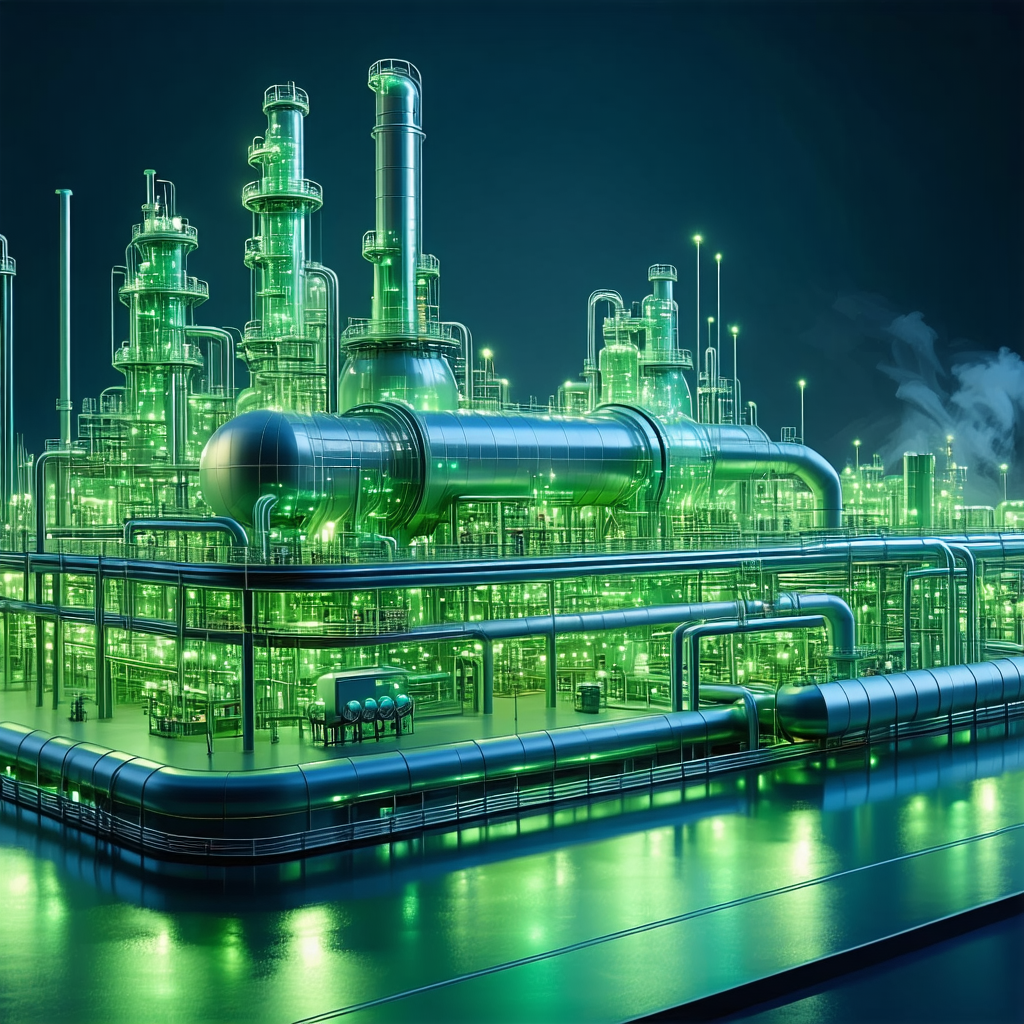
Desulfurization for Cleaner Fuels
Refineries use hydrogen in hydrodesulfurization (HDS) to remove sulfur from fuels, reducing air pollution.
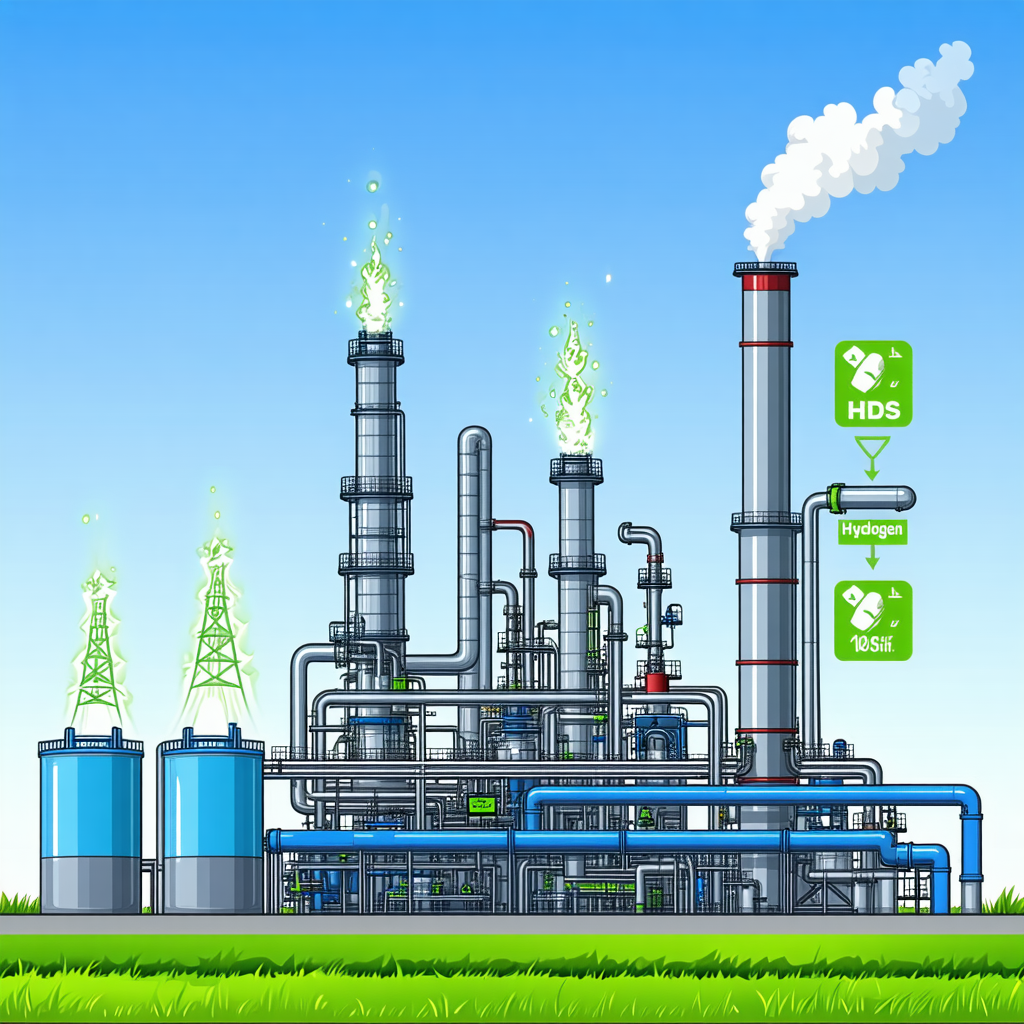
- Meets Emission Standards: Helps refineries comply with global environmental regulations.
- Reduces Acid Rain: Lower sulfur content prevents harmful emissions.
- Improves Engine Performance: Cleaner fuels enhance vehicle efficiency.
Fertilizerss
Green Hydrogen is a key ingredient in ammonia production, which is used to manufacture fertilizers.
Green Ammonia Production
Hydrogen reacts with nitrogen to produce ammonia (NH₃), a vital component in fertilizers.
- Sustainable Fertilizer Production: Reduces reliance on fossil fuels.
- Lower Carbon Emissions: Green ammonia eliminates CO₂ emissions from fertilizer production.
- Supports Global Food Security: Ensures sustainable agricultural practices.
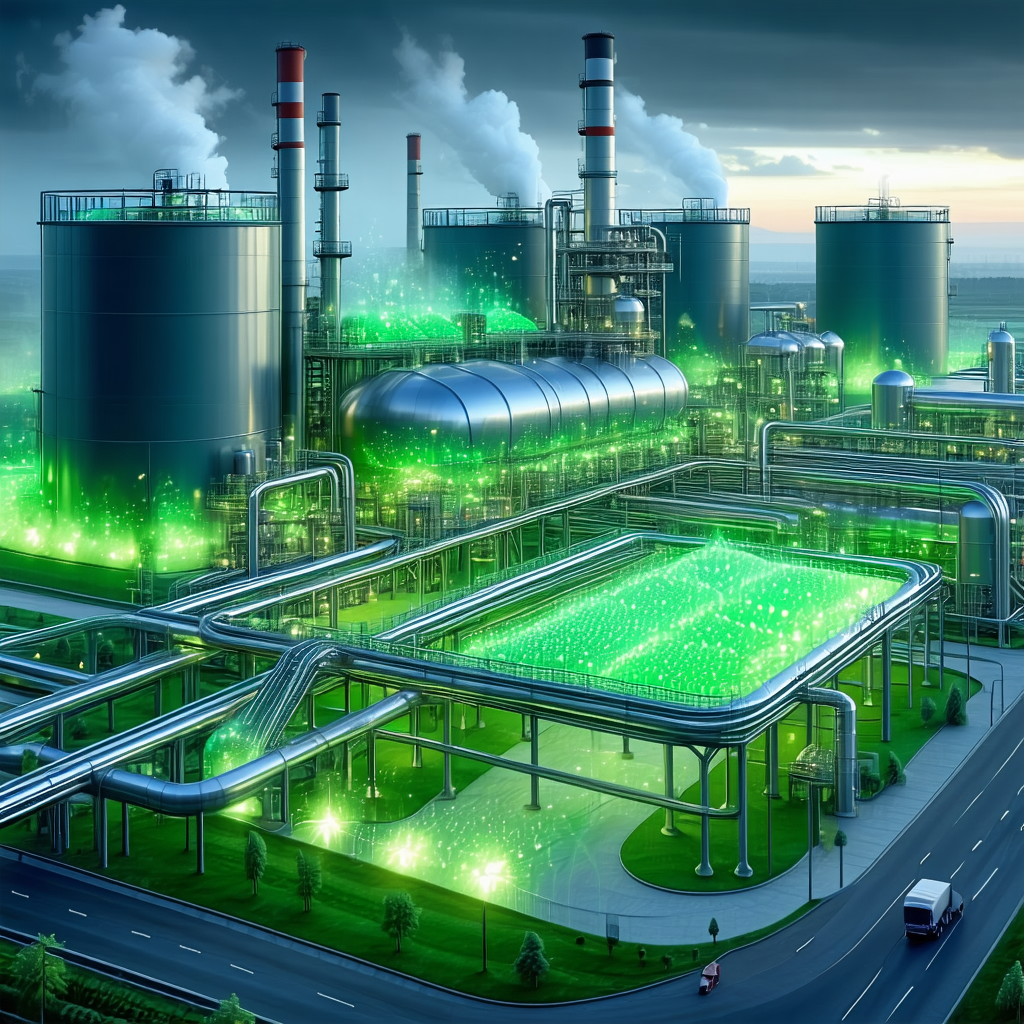
Direct Hydrogen Use in Agriculture

Hydrogen is used to power agricultural machinery and greenhouses.
- Hydrogen-Powered Tractors: Zero-emission farming equipment.
- Controlled Greenhouse Environments: Enhances plant growth with hydrogen-powered systems.
- Renewable Energy for Farms: Hydrogen storage balances energy supply.
Iron and Steel Industry
The Iron and Steel Industry is one of the largest contributors to global CO₂ emissions. Green Hydrogen offers a sustainable solution by replacing coke and coal in the steelmaking process.
Hydrogen-Based Direct Reduction (DRI)
- Process Overview: Hydrogen reacts with iron ore to produce direct reduced iron (DRI), eliminating the need for coke.
- Advantages of DRI: Hydrogen-based reduction processes are more energy-efficient and environmentally friendly compared to traditional methods.
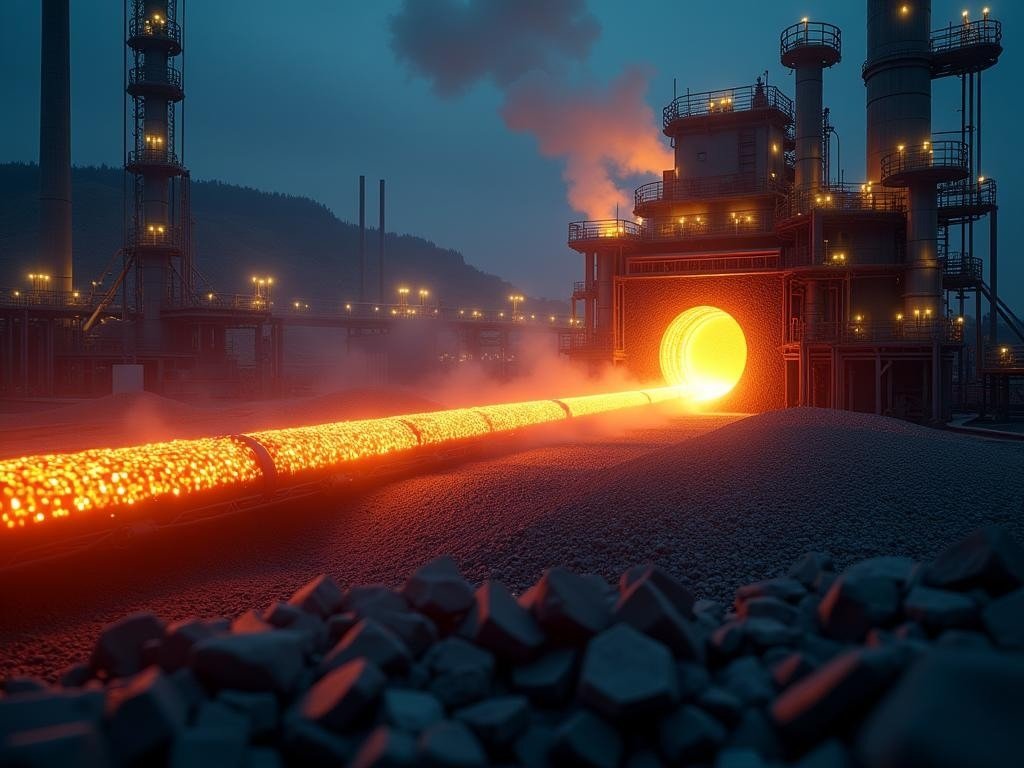
Reducing CO₂ Emissions in Steelmaking
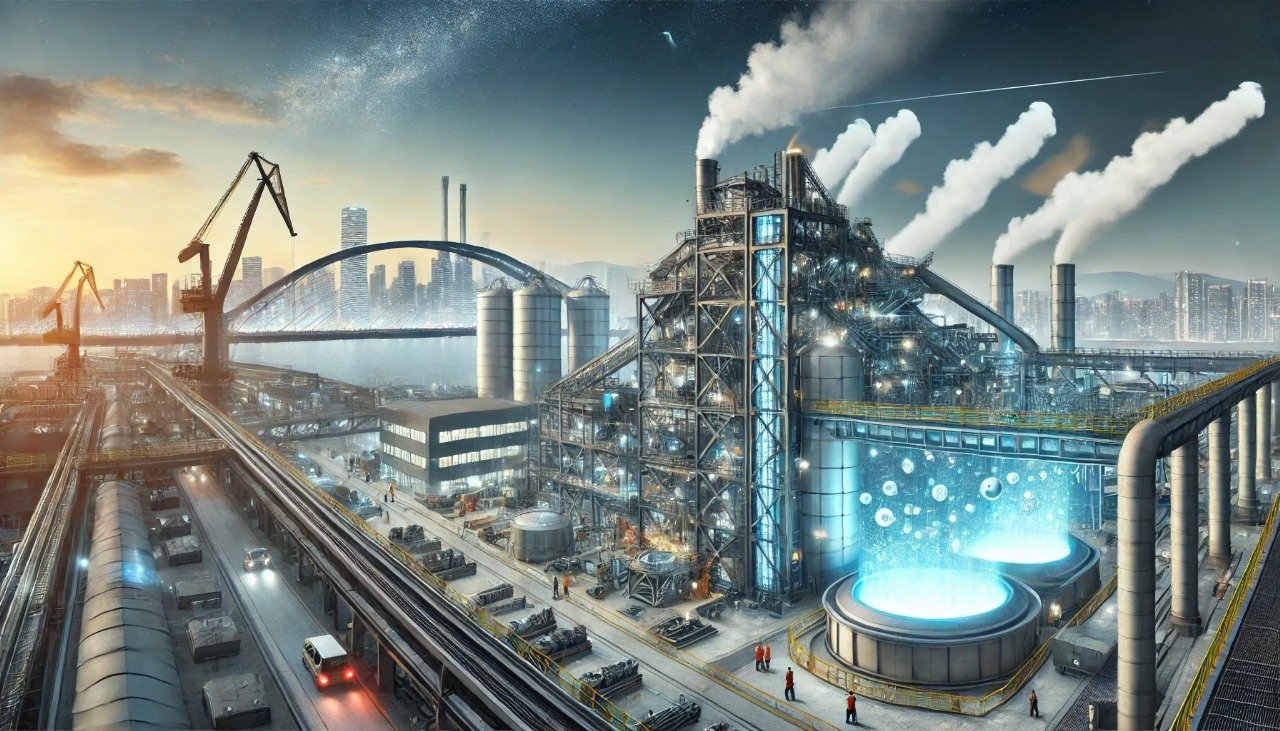
- Carbon-Free Steel Production: Using hydrogen significantly reduces CO₂ emissions, making steel production greener.
- Industry Transition: The shift to hydrogen can help the steel industry meet global decarbonization targets.
Energy Efficiency in Steel Production
- Lower Energy Consumption: Hydrogen-based processes require less energy compared to traditional methods.
- Sustainable Energy Sources: Hydrogen can be produced using renewable energy, reducing dependency on fossil fuels.
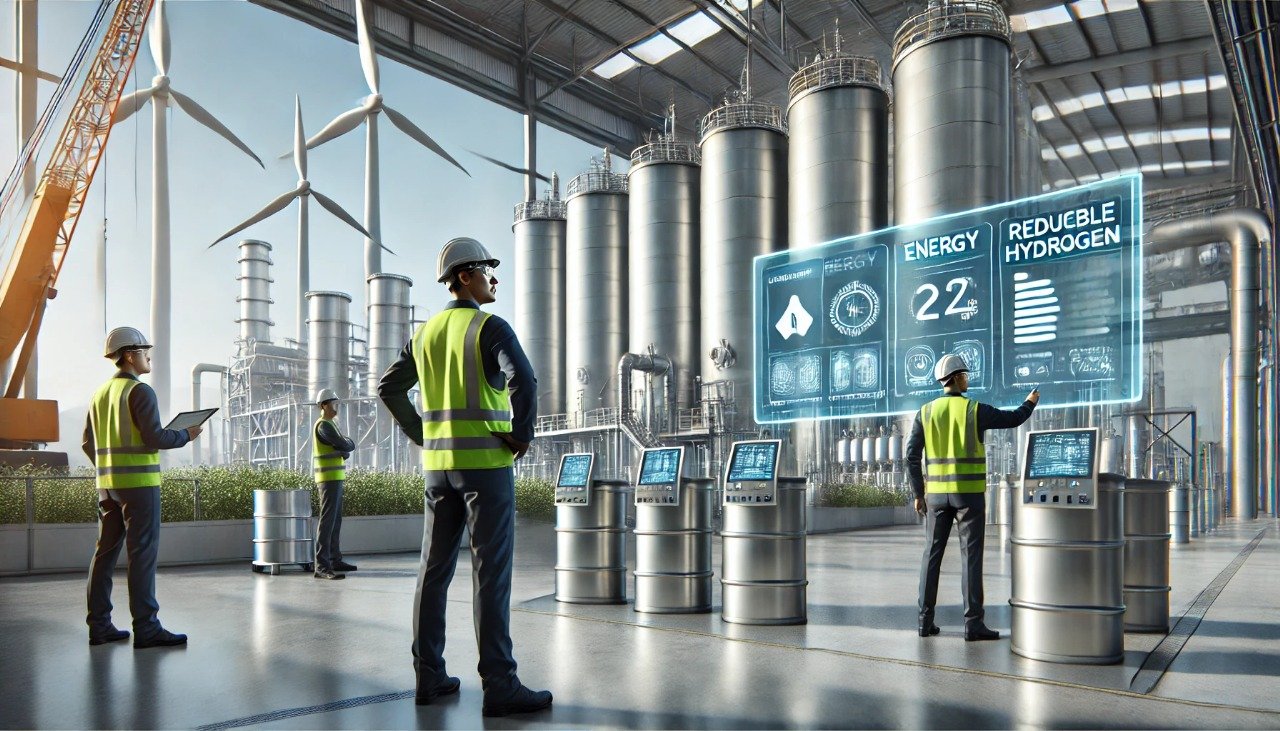
Cement Manufacturing
The Cement Industry is another hard-to-abate sector, contributing significantly to global carbon emissions. Green Hydrogen can help decarbonize cement production by replacing fossil fuels in the production process.
Hydrogen in Cement Kilns
- Replacing Fossil Fuels: Hydrogen can be used as a fuel in cement kilns to replace coal and natural gas.
- Cleaner Clinker Production: Hydrogen combustion produces no CO₂ emissions, making the cement production process cleaner.
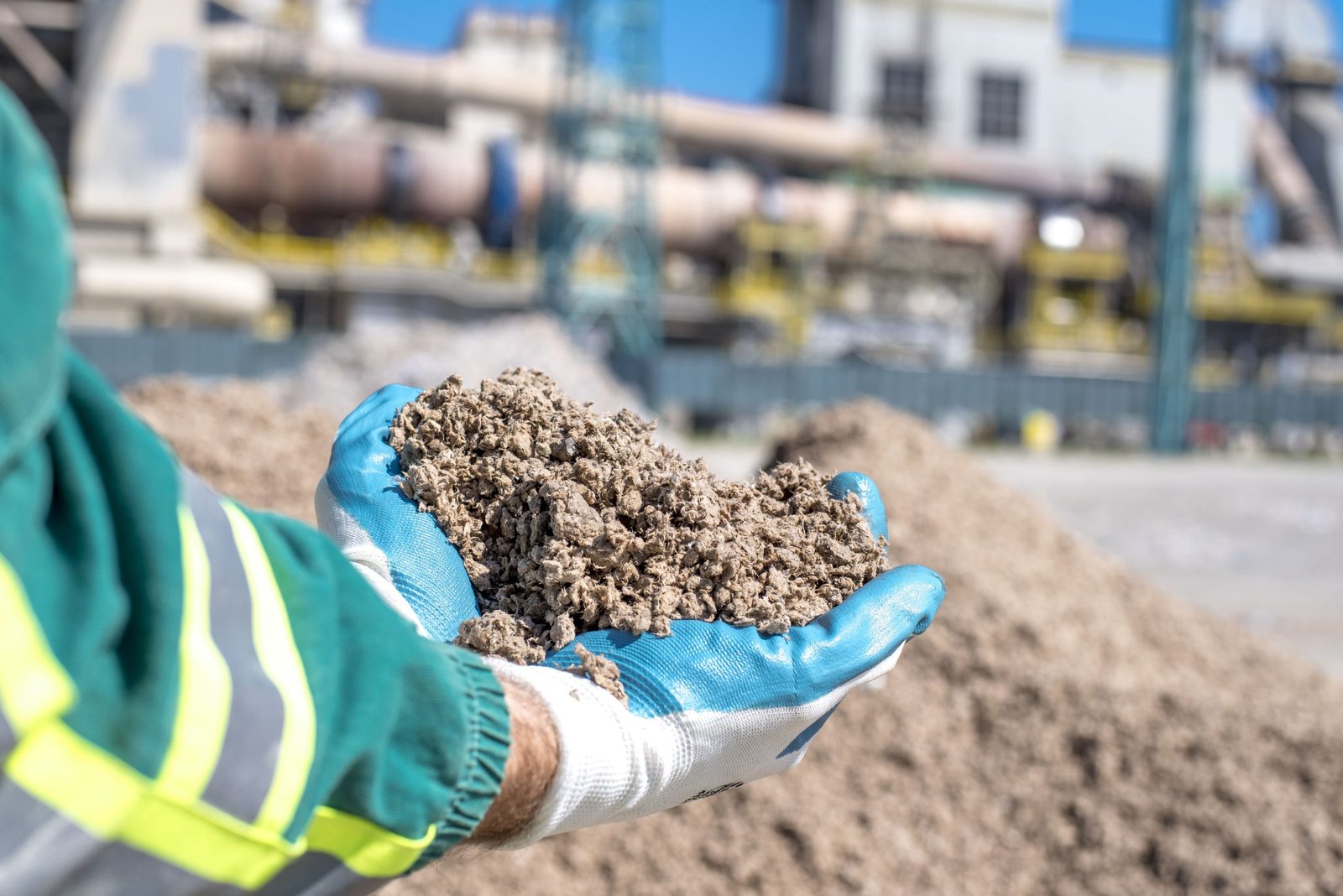
Decarbonizing the Cement Supply Chain

- Sustainable Raw Materials: Hydrogen can also be used in the transportation of raw materials, reducing emissions throughout the supply chain.
- Energy Efficiency: The use of hydrogen helps improve the overall energy efficiency of cement production.
Supporting Carbon Capture Technologies
- Complementing Carbon Capture: Hydrogen can be used alongside carbon capture and storage (CCS) technologies to further reduce emissions.
- Reducing Overall Carbon Footprint: By replacing fossil fuels with hydrogen, the carbon footprint of cement manufacturing can be significantly reduced.

Heavy Duty Manufacturing
Heavy-duty industries such as shipbuilding, aviation, and heavy machinery manufacturing are traditionally reliant on fossil fuels. Green Hydrogen offers a clean energy alternative for these sectors, reducing emissions from industrial processes.
Hydrogen-Powered Industrial Equipment
- Hydrogen for Heavy Machinery: Hydrogen can power large industrial machines, reducing emissions from construction and mining equipment.
- Zero-Emission Vehicles: Hydrogen-powered trucks and cranes offer a sustainable solution for heavy-duty transport.

Hydrogen in Metal Processing

- Hydrogen-Based Furnaces: Hydrogen can replace fossil fuels in high-temperature metal processing, such as in steelmaking and aluminum production.
- Lower Emissions in Manufacturing: Using hydrogen reduces the need for coke and coal, lowering the carbon emissions in the manufacturing process.
Energy Storage and Industrial Use
- Balancing Renewable Energy: Hydrogen can store excess renewable energy and be used to power heavy-duty industries when needed.
- Reliable Energy Source: Hydrogen can provide a stable energy source for industries with high energy demands.

